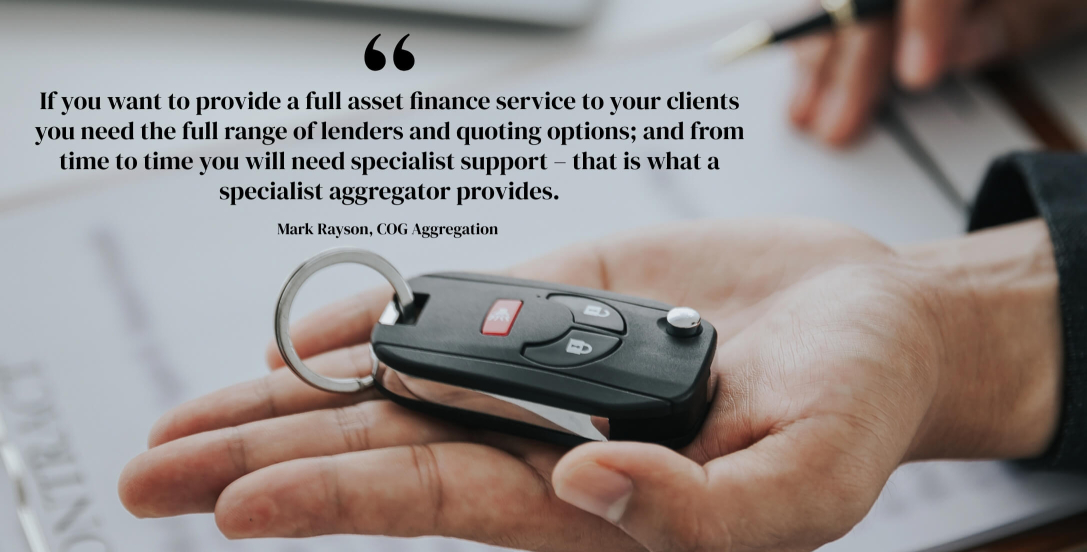Comparing asset finance loans to residential mortgages is like the difference between rugby league and rugby union. Both pursuits share some common principles. But at a fundamental level, they’re two different things, operating under different rules and often requiring a specialist set of skills.
For this reason, brokers who have just opened their laptop to an inbox filled with asset finance inquiries, or those who just want to expand their business into a different credit area, may be well served by approaching a dedicated asset finance aggregator.
Many aggregation groups now offer a specialist asset finance arm (including LMG Asset Finance, Connective Asset Finance, and Fintelligence), with other groups – including Finsure – announcing a renewed focus on building its asset finance offering. It recently hired asset finance specialist Elijah Swift as business development manager to build Finsure’s asset finance solutions and help brokers tap into this space.
Noting the move, Finsure CEO Simon Bednar said earlier this year: “Brokers who can navigate complex financial solutions and offer a holistic view on available financing options can help attract more customers and increase customer loyalty.”
Other aggregators choose to be solely dedicated to asset finance.
Mark Rayson, head of COG Aggregation, Australia’s largest asset finance aggregation business, says this specialisation is particularly important when brokers start to see volume.
“Our brokers are the sort of people that wake up in the morning thinking about financing a car or a truck or some earthmoving equipment, not waking up thinking about doing mortgages and then happen to fall over somebody that requires a car,” Rayson says.
“We find that that needs a specialist set of skills.”
Part of choosing a dedicated asset finance aggregator is gaining access to a lender panel with a greater range of specific solutions, whether the client is an Uber driver who wants to upgrade to an electric vehicle (EV) or a construction company investing in earthmoving equipment.

But what’s just as important, according to Rayson, is direct access to subject matter experts with the expertise to understand complex inquiries and put the best solution forward.
“Knowing where to place a deal is a specialist skill,” Rayson says.
“We spend a lot of time working with brokers to find lenders that can accommodate different client needs. Almost all lenders will do car loans, but knowing which ones will, for example, accommodate an Uber driver is a specialist skill.”
Rayson also comments on the importance of relationships, particularly between the broker and their aggregator business development manager (BDM), and says this is one of the most important elements behind getting the right client outcome.
“The key with that is establishing a good relationship with your BDM,” Rayson says.
“This is not saying that a BDM knows any more than a broker, but they do have a broader line of sight in terms of what the market is doing and what a variety of lenders are doing.”
Another advantage of partnering with a dedicated asset finance aggregator is getting access to specialist tools and broker support.
COG Aggregation, for example, provides access to COG CarSelect, a service that irons out some of the creases in the car buying process, as well as COG Connect, a customer relationship management (CRM) system specifically for asset finance brokers.
“Even our compliance services are solely focused on asset finance, which in the compliance world is very different to other products such as mortgages,” Rayson says.
While the fundamental principles of serving clients may overlap, asset finance requires specialised knowledge and expertise, whether the client is after an EV, digger, or even a helicopter.
By working with a dedicated asset finance aggregator, brokers get more than access to a specialised lender panel – they gain the knowledge, expertise, and relationship focus to ensure the products they put on their client’s desk are in their best interests.




